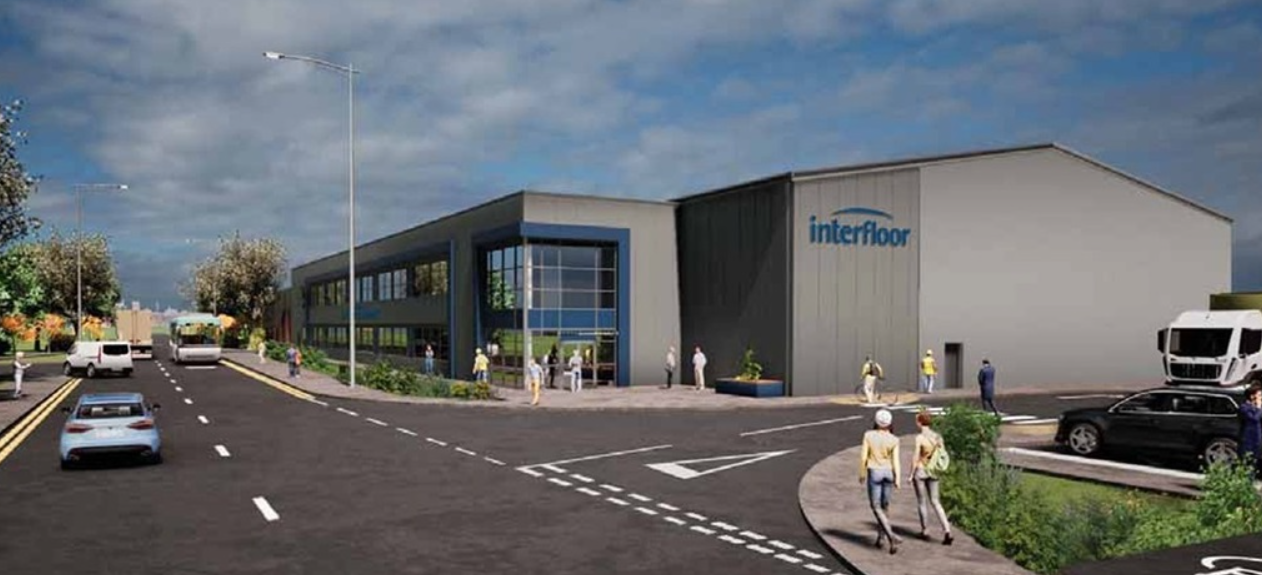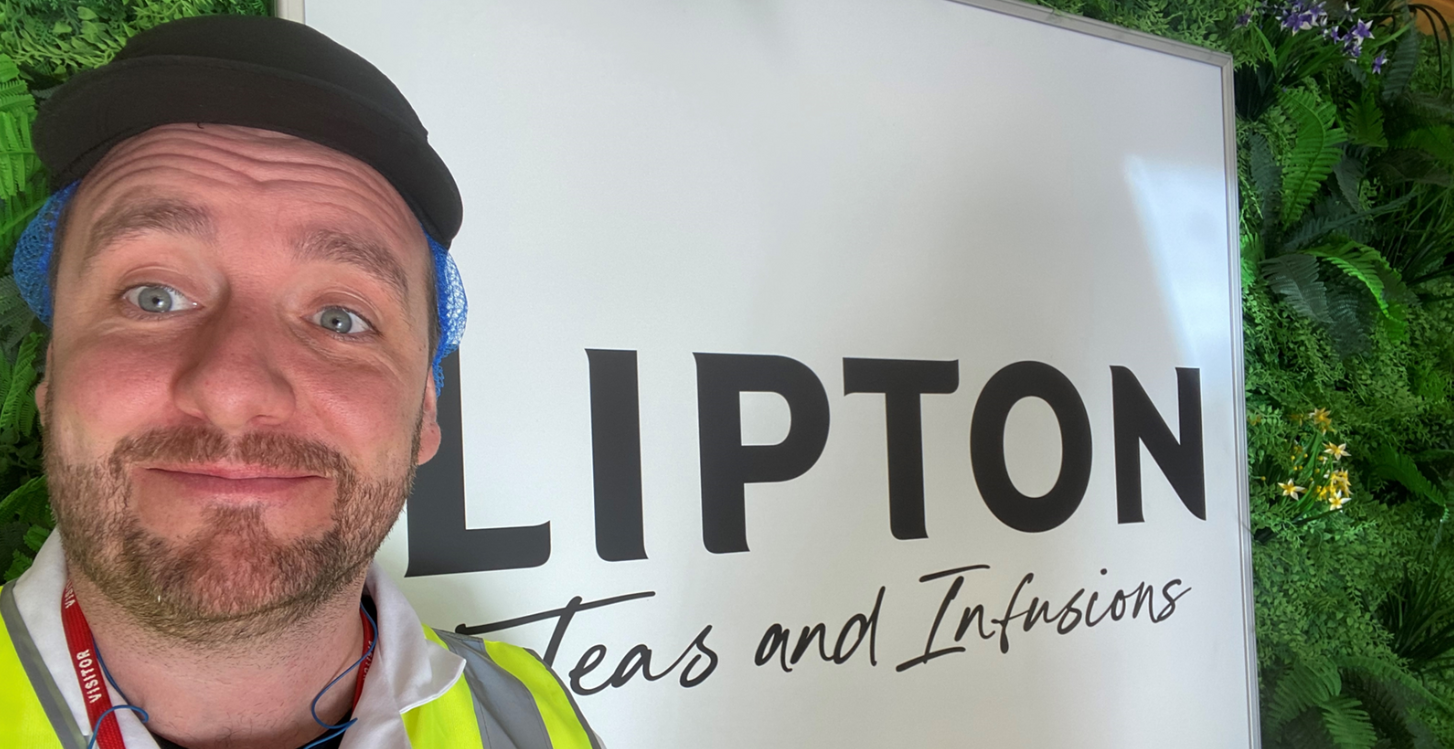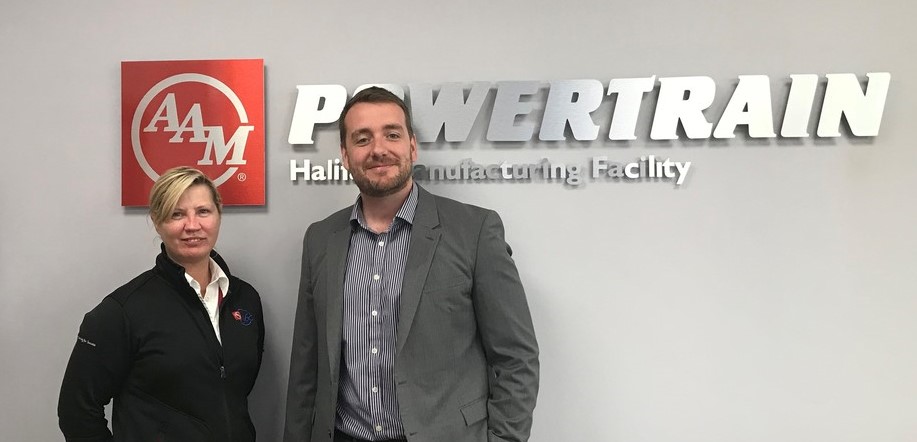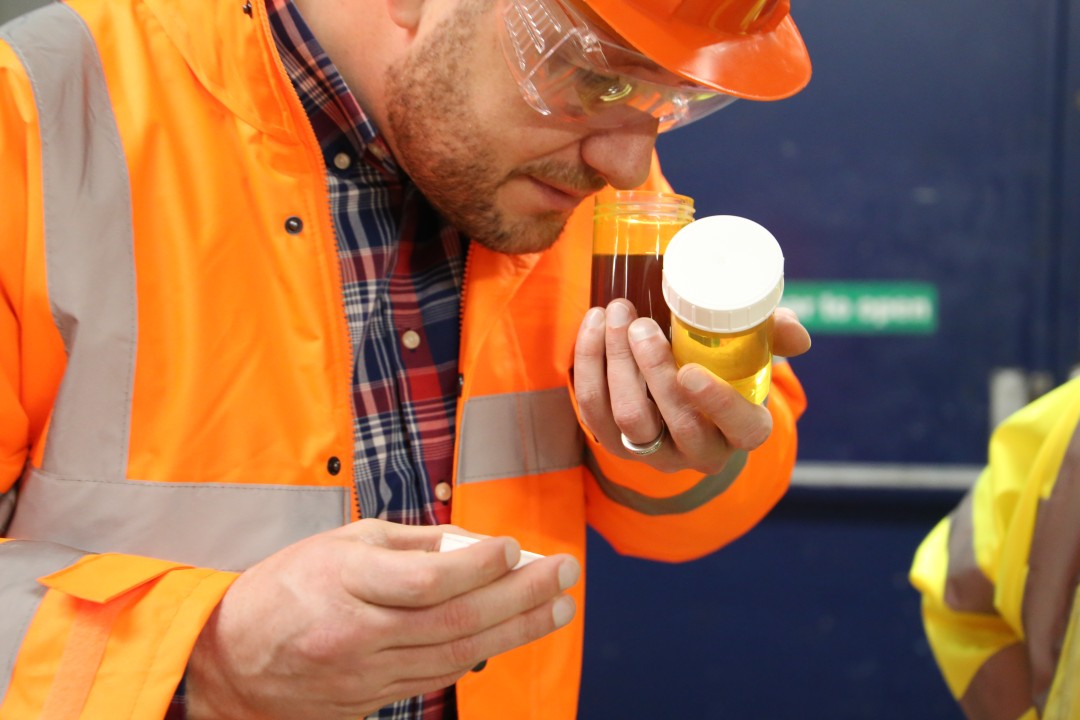
Bringing People
Together
Since 2002
You can speak to an advisor on: 0151 786 8239
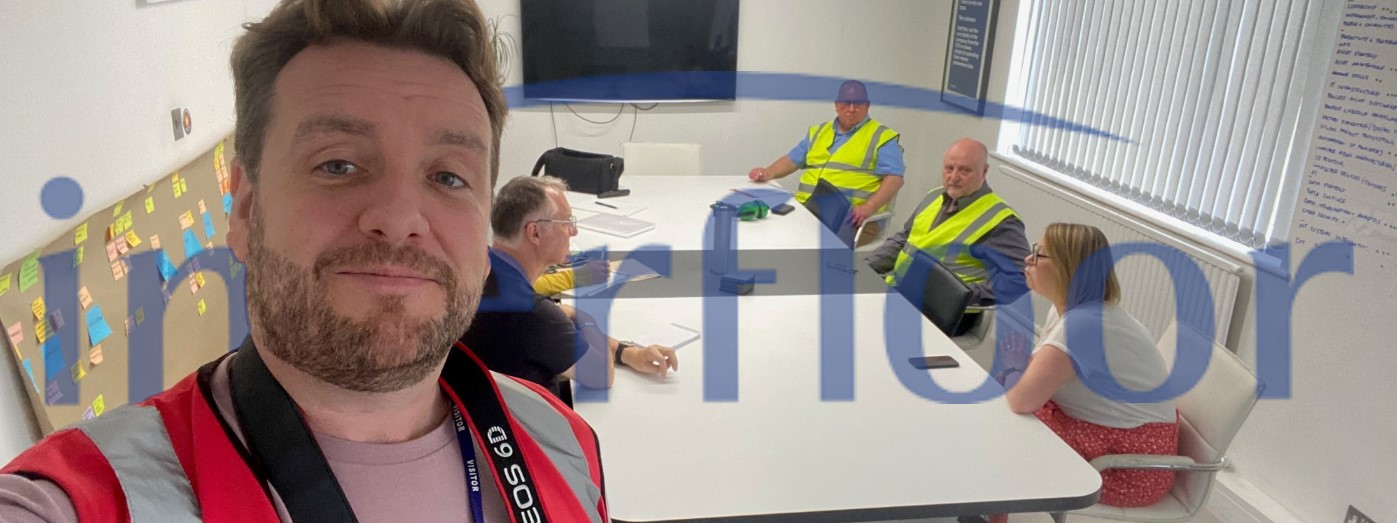
Terry walks the Gemba and gives a recruiters perspective on Interfloor’s people and operations.
Our latest Gemba Walk took us deep into the industrial heart of Rossendale, Lancashire, where we were hosted by long-term network member and Managing Director Gary McEwan and his team at Interfloor – a leading manufacturer of underlay and flooring accessories, and a part of the Victoria PLC group. Sustainability is built into everything they do. They recycle around three million car tyres each year for crumb rubber underlay, while their PU foams average 80 % recycled content. Their award‑winning product renu® uses 98 % recycled materials and is itself 100 % recyclable. Interfloor is accredited to ISO 14001, and their Supplier Charter drives high ethical, social and environmental standards across the value chain.
This event comes at a particularly exciting time for the company. As reported by Place North West, Interfloor is planning a major expansion of its Lancashire headquarters, underlining a progressive, forward-looking culture that matches its operational scale. With nearly 25 years of experience supporting world-class manufacturers, we’ve walked through many factories – but few as rich in heritage, capability, and ambition as this.
A Manufacturing Giant with Deep Roots
Interfloor, part of the Victoria PLC group of companies, was formed in 2002 through the merger of Tredaire and Duralay. But the story goes back much further — to the 1940s, when Duralay began manufacturing the very first carpet underlays in the UK. That pioneering spirit still echoes through the business today.
Interfloor is one of those companies whose products most people never see — but whose impact is felt everywhere. From their market-leading underlay lines to the iconic gripper rod, Interfloor quietly supports millions of homes, commercial spaces, and projects across the UK and globally.
For me, whilst it is only an accessory in their portfolio, the gripper rod, in particular, is a standout. It’s become so synonymous with its function that many in the trade refer to it by the brand name, not the product type — much like "JCB" for diggers or "Hoover" for vacuum cleaners. That level of brand recognition doesn’t come easily — it’s earned over decades through consistency, reliability, and product excellence.
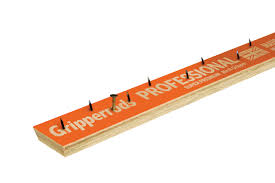 |
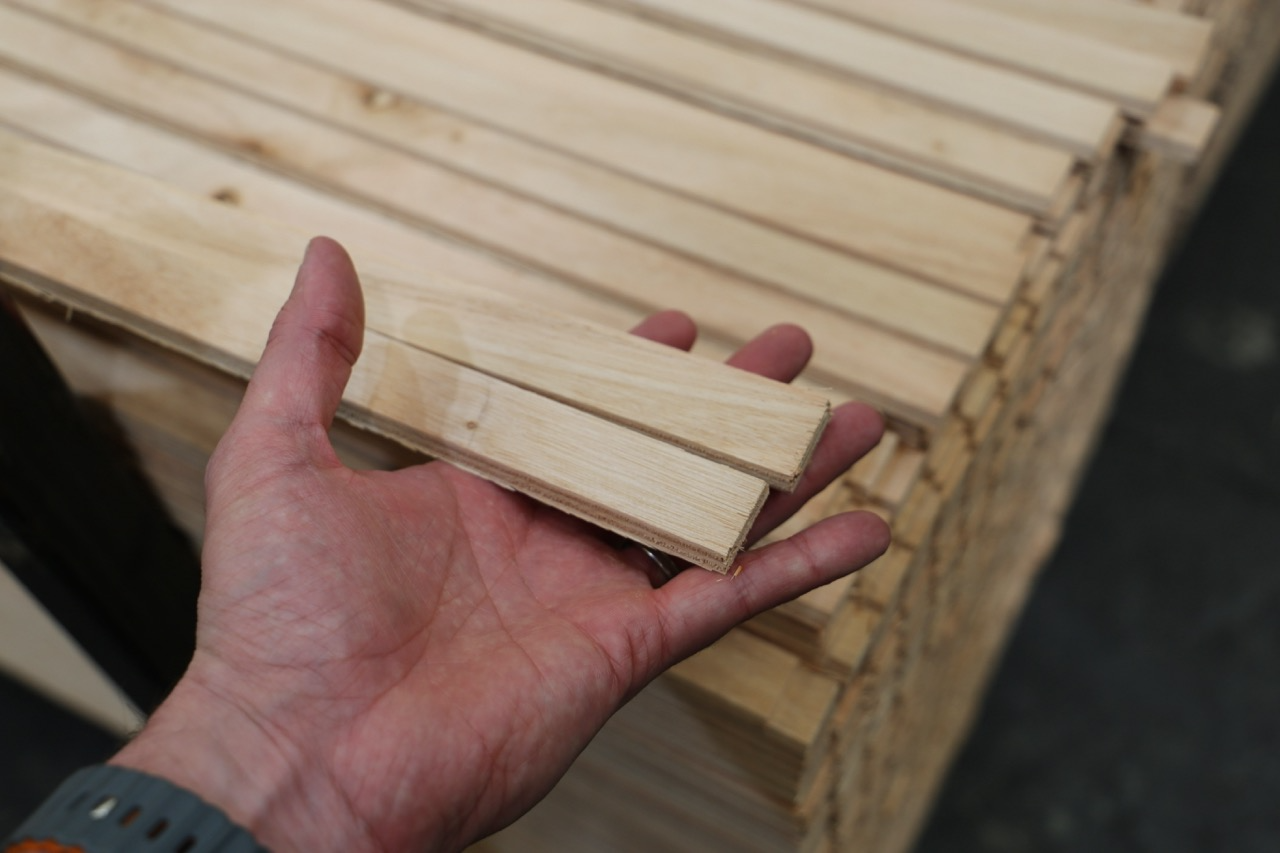 |
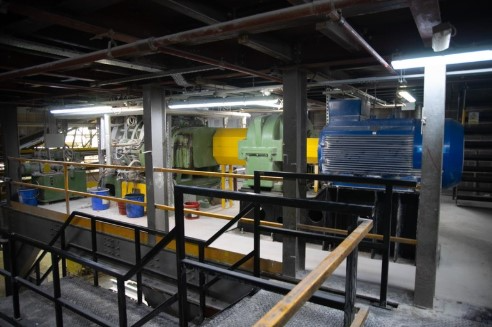 |
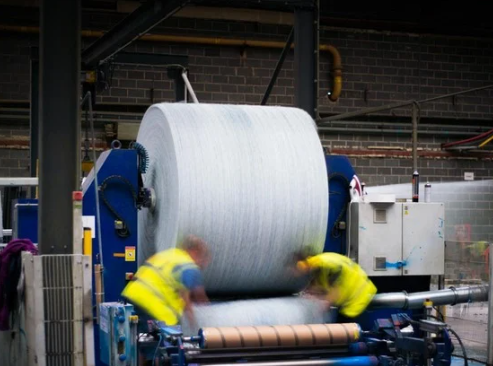 |
An Industry on the Move – Market Context
Interfloor isn’t just a leader in its niche — it’s operating in a sector that is substantial, expanding, and strategically important to construction and interiors.
- The UK flooring and wall covering market is currently worth £3.9 billion, expected to exceed £4.1 billion by 2025.
- Vinyl and resilient flooring markets in the UK alone generate nearly US$3 billion annually, and are growing steadily at 3–4% CAGR.
- The UK flooring adhesives segment, which is closely tied to underlay and accessory products, is forecast to grow at 8.5% CAGR through 2030 — reaching over US$317 million in value.
- Globally, the flooring industry exceeds US$96 billion in 2024 and is projected to grow to US$129 billion by 2030.
These figures underline the strategic importance of the sector — and of businesses like Interfloor who are innovating across materials, installation systems, and logistics to meet rising market demands.
Scale, Complexity & Capability
The large, sprawling Haslingden facility reflects both the legacy and evolution of British manufacturing. It’s a fascinating blend of older infrastructure and modern technology, housing a uniquely diverse range of manufacturing processes under one roof — from foam and rubber production to wood machining, adhesives formulation, and extrusion technologies.
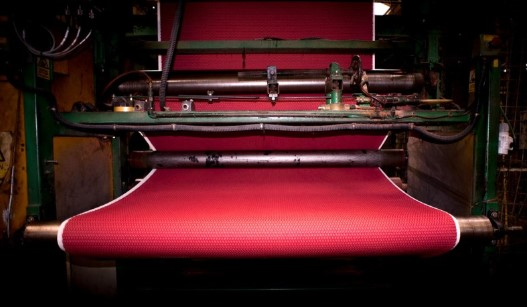 |
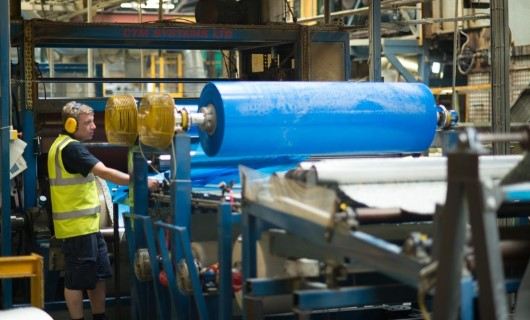 |
This technical diversity is mirrored in the breadth of materials being processed on-site:
- Chemicals, rubbers, and advanced polymers for underlay products
- Engineered timbers and metals for accessories like gripper rods
- Recovered waste streams integrated into recycled-content underlays, supporting sustainability objectives and circular economy practices
Their extensive warehouse operation, capable of holding up to 80,000 customer-specific products, supports a responsive, high-volume fulfilment model. The presence of an in-house fleet of branded vehicles further underlines Interfloor’s commitment to service, speed, and supply chain control.
Shifting to Preventative Maintenance – A Strategic Enabler
One of the most forward-thinking developments we observed during our visit is Interfloor’s business-wide shift to Planned Preventative Maintenance (PPM) methodologies. This move has been reinforced by the implementation of a new Computerised Maintenance Management System (CMMS) – a cornerstone investment in improving asset reliability and operational performance.
The benefits of this change are already becoming clear:
- Reduced unplanned downtime, thanks to structured servicing schedules
- Data-driven decision-making, with better visibility over maintenance history, asset performance, and engineering workloads
- Improved spare parts management, avoiding costly delays and overstocking
- Increased equipment lifespan, protecting capital investments
- Enhanced compliance and traceability, supporting audit readiness and safety protocols
It’s a cultural shift as much as a technical one – moving maintenance from a reactive, firefighting model to a proactive, performance-oriented discipline. The CMMS isn’t just about dashboards – it’s about building reliability and resilience into every layer of the operation.
A Business in Transformation
Despite its rich history, Interfloor is anything but static. Under Gary’s leadership, the company is undergoing a progressive transformation, shaped by a strategic focus on:
- People development
- Process efficiency and technology investment
- Sustainability improvements
- Plant layout and site upgrades
- Operational excellence and lean practices
Recently, the team have invested £1.2M in replacing their fume abatement technology where we replaced an out-dated regenerative thermal oxidiser with a modern and more energy efficient precipitator system (picture: right). The process generates VOCs and off-gas during the curing of rubber products and to ensure full compliance with airborne emissions, they now have the latest fume abatement technology. The upgrade will have a 3 year payback in reduced energy costs but will also reduce their Greenhouse Gas emissions by over 6,000 tonnes of CO2 each year.
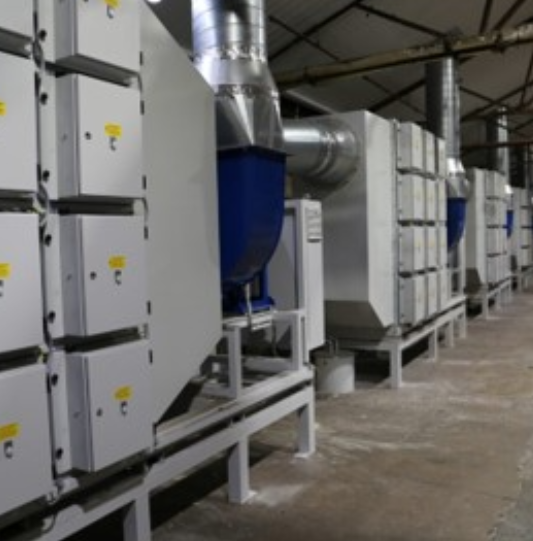 |
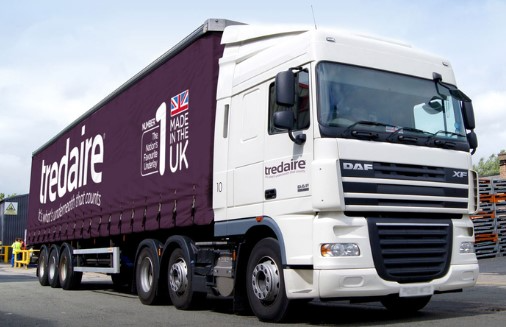 |
Culture, Safety & Community
We were particularly struck by the strength of Interfloor’s Safety First culture. From signage to team behaviours, safety isn’t just a compliance issue – it’s a foundational mindset across the site.
There’s also a deep local connection. As a major employer in the Rossendale area, Interfloor plays a significant role in the local economy. That sense of responsibility to both people and place came through clearly in the pride shown by the workforce.
Final Reflections
Interfloor is a manufacturer that exemplifies what it means to balance heritage with innovation. With origins in the 1940s, a brand portfolio recognised industry-wide, and a modern outlook grounded in lean, efficient, and safe operations – this is a business with both substance and momentum.
Our sincere thanks to Gary McEwan and the entire Interfloor team including Marketing, HR, Operations and Engineering, for the insight, transparency, and warm welcome. It was a pleasure to get a true Gemba-level view of a business that’s working hard to leave a lasting mark — underfoot and beyond.
Terry Murphy
ShareHow can we help?
If you’d like to learn more about our divisions, don’t hesitate to ask…
